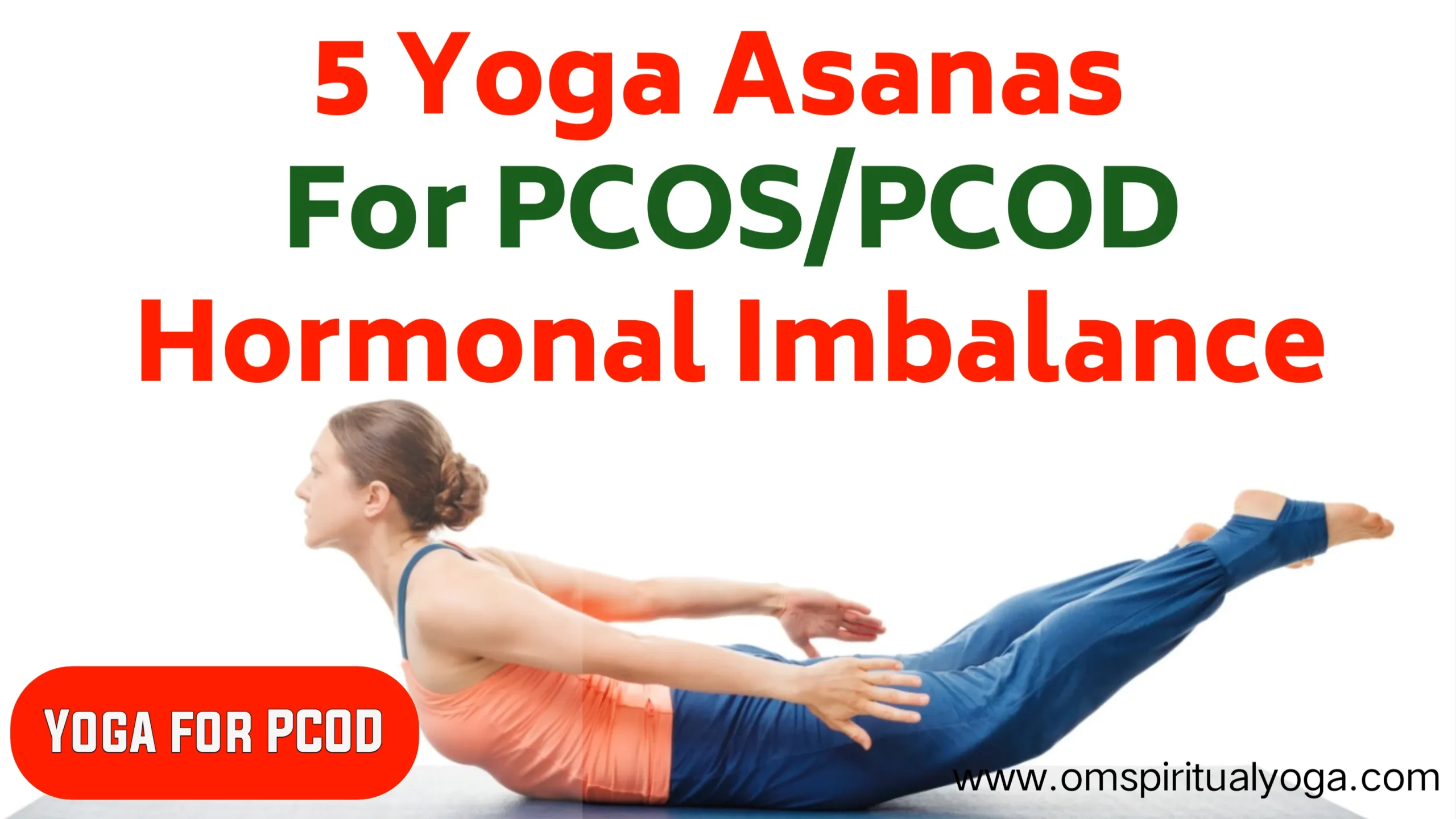Polycystic Ovary Disease (PCOD) affects many women and has a range of symptoms both at a mental and physical level. This can make life challenging for the patient and the people around her. You’ll be happy to know that yoga can be an effective way to manage the symptoms of this condition. Yoga can help reduce stress, balance hormones, and improve your overall health. Today, we’ll explore some of the best Yoga for PCOD.
Badhakonasana (Butterfly Pose):
Begin seated with both legs extended in front of you. Bend your knees and bring the soles of your feet together, allowing your knees to drop out on their respective sides. Hold onto your ankles with your hands, pull your legs as close to your body as possible, and press your knees down towards the floor. Hold for some time and then release. Do this for a few rounds. Badhakonasana helps stretch and open the hips and groins, which can be helpful for women suffering from PCOD. It improves circulation to the pelvic area, which can help regulate the menstrual cycle and reduce menstrual cramps. It also releases stress and tension in the body.

Baddha Konasana (Bound Angle Pose):
Sit down in Baddha Konasana. Spread your feet apart while keeping your knees together. Sit on the mat in the space created between your feet. Lean backward with the help of your elbows and forearms to lie supine. Interlace your fingers and hold your hands over your abdomen. Maintain this posture with normal rhythmic breathing until comfortable, but not for more than two minutes. Baddha Konasana helps regulate the thyroid glands and balances hormones. It improves digestion and relieves constipation, which can be a symptom of PCOD. It also relieves stress and anxiety, which can worsen the condition of PCOD.
Also Read – 7 Hip Opening Yoga Poses Yoga Asanas for Tight Hips & Toning
Paschimottanasana (Seated Forward Bend):
Sit on the floor with your legs extended in front of you. Lean backward, keeping both your palms facing downwards and beside your chest, hands folded at the elbow. Slowly bend forward, stretching your hands to hold your toes and trying to touch your head to your knee without bending your knees. Here you can even try to lower your elbows to touch the floor if possible. Remain in this position for a few seconds and then return to the starting position. Paschimottanasana stretches your spine, hamstrings, and lower back, reducing back pain and discomfort that may come with PCOD. It helps stimulate the ovaries and improve hormonal balance.
Ardha Matsyendrasana (Half Lord of the Fishes Pose):
Sit on the floor with both legs extended in front of you. Fold your right leg inwards and press your heel against the perineum. Take your right leg, bending at the knee, across your left thigh. Place your right foot near the outside of the left hip and bring your right knee close to your chest. Bend the left leg at the knee inwards and place your foot close to your right hip. Twist your torso to the right side, and let your left hand hold your right ankle or toe. Give more twist to your spine and place your right hand across your back with the palm facing outwards. At the same time, turn your head and neck towards your right shoulder. Stay in the posture for a few seconds and then come back to the starting position. This pose stimulates the liver and kidneys, which can help detoxify the body and improve liver function, important for hormonal balance. It stretches the shoulders, hips, and spine, which can alleviate tension and discomfort in those areas.
Balasana (Child’s Pose):
Slowly bend forward, keeping your hands by your side with palms facing up. Rest your head on the floor if possible for a few seconds, and then return to the starting position. Balasana calms the mind and releases stress and anxiety. It helps improve blood flow to the reproductive organs, which can improve overall reproductive health.
These five yoga asanas are beneficial for women with PCOD because they help regulate hormones, improve digestion and circulation, alleviate pain and discomfort, and, most importantly, reduce stress and anxiety. Learn and practice these asanas to manage PCOD and bring balance to your lifestyle. Namaskar.

